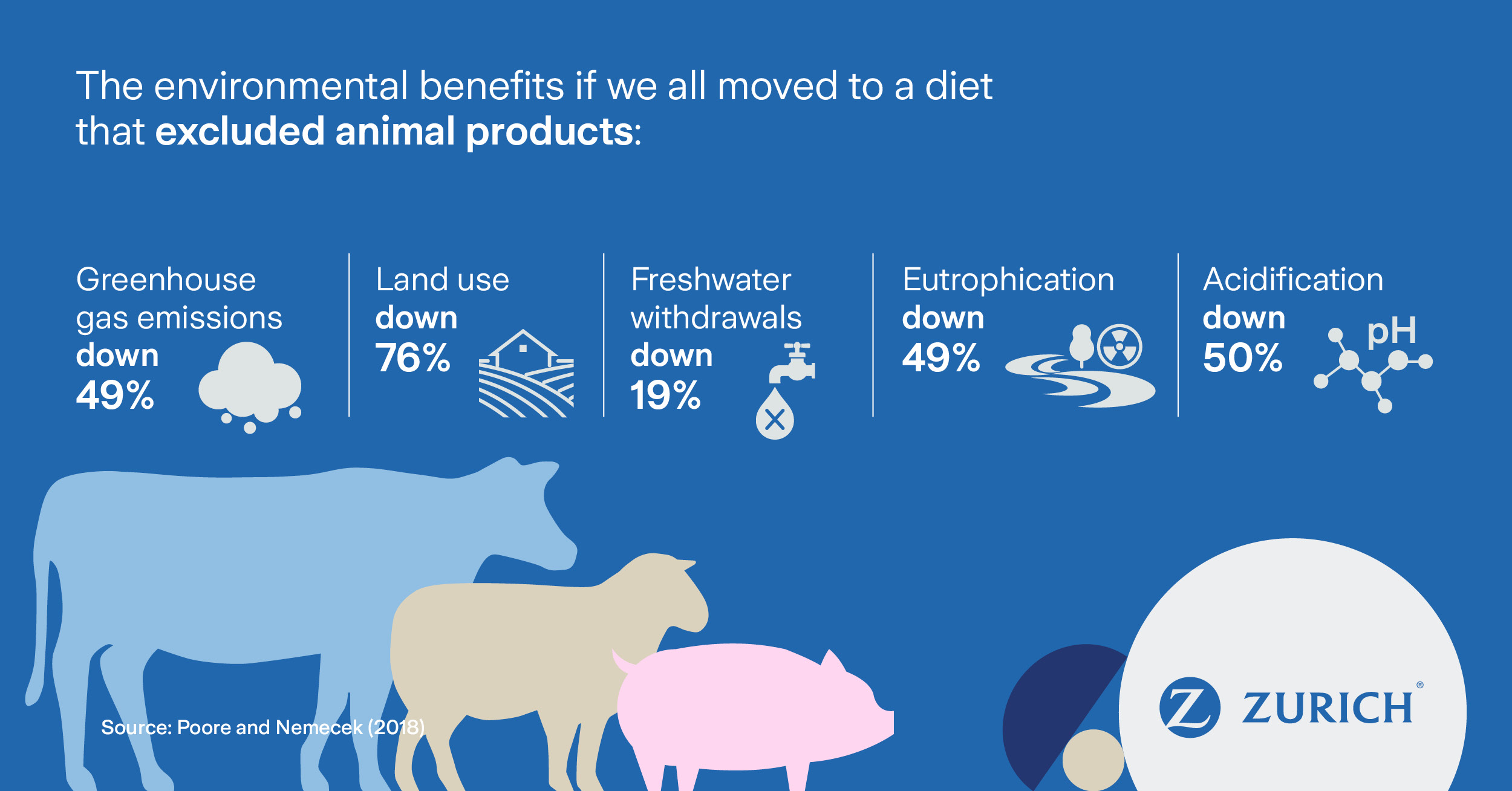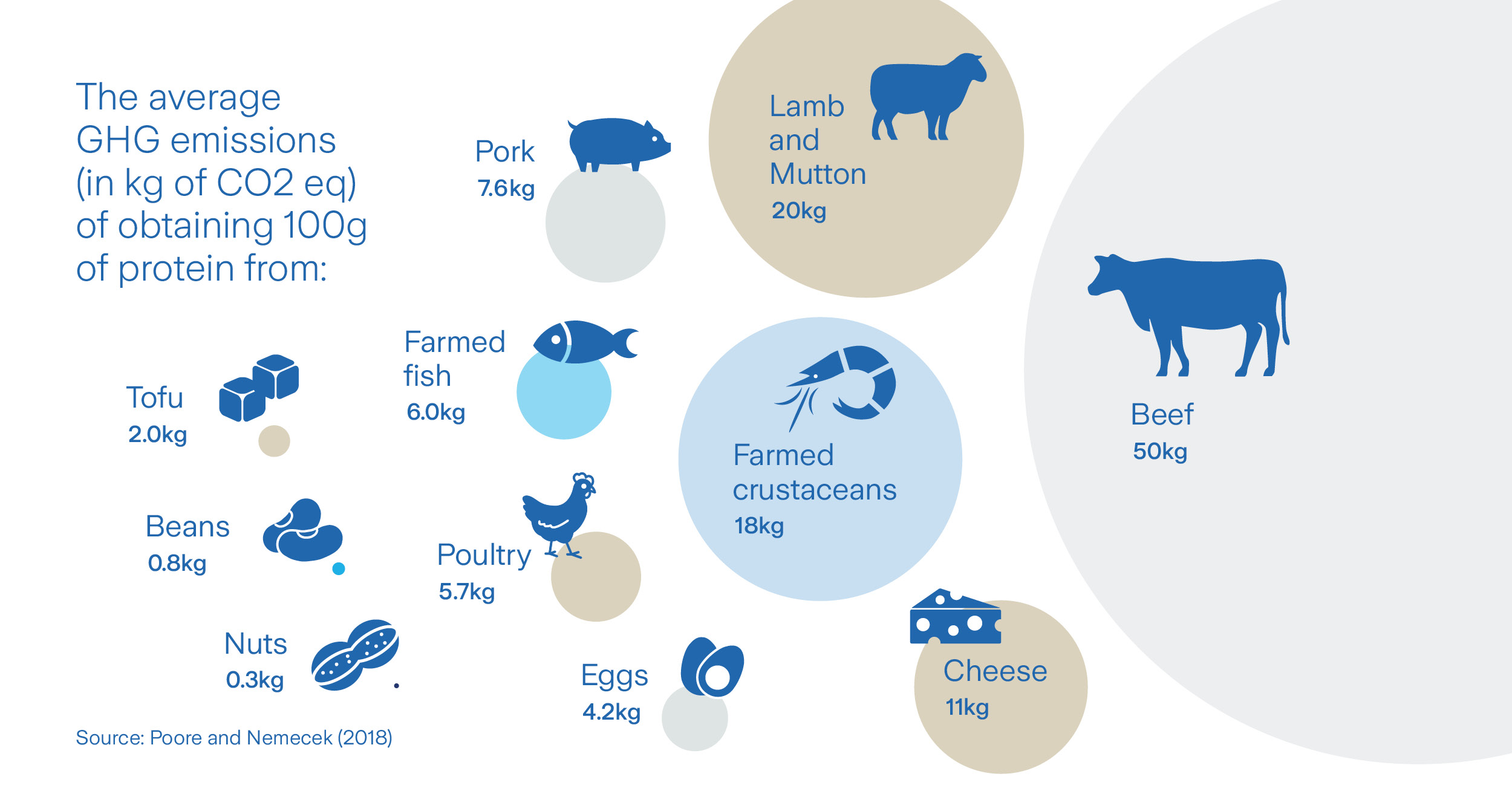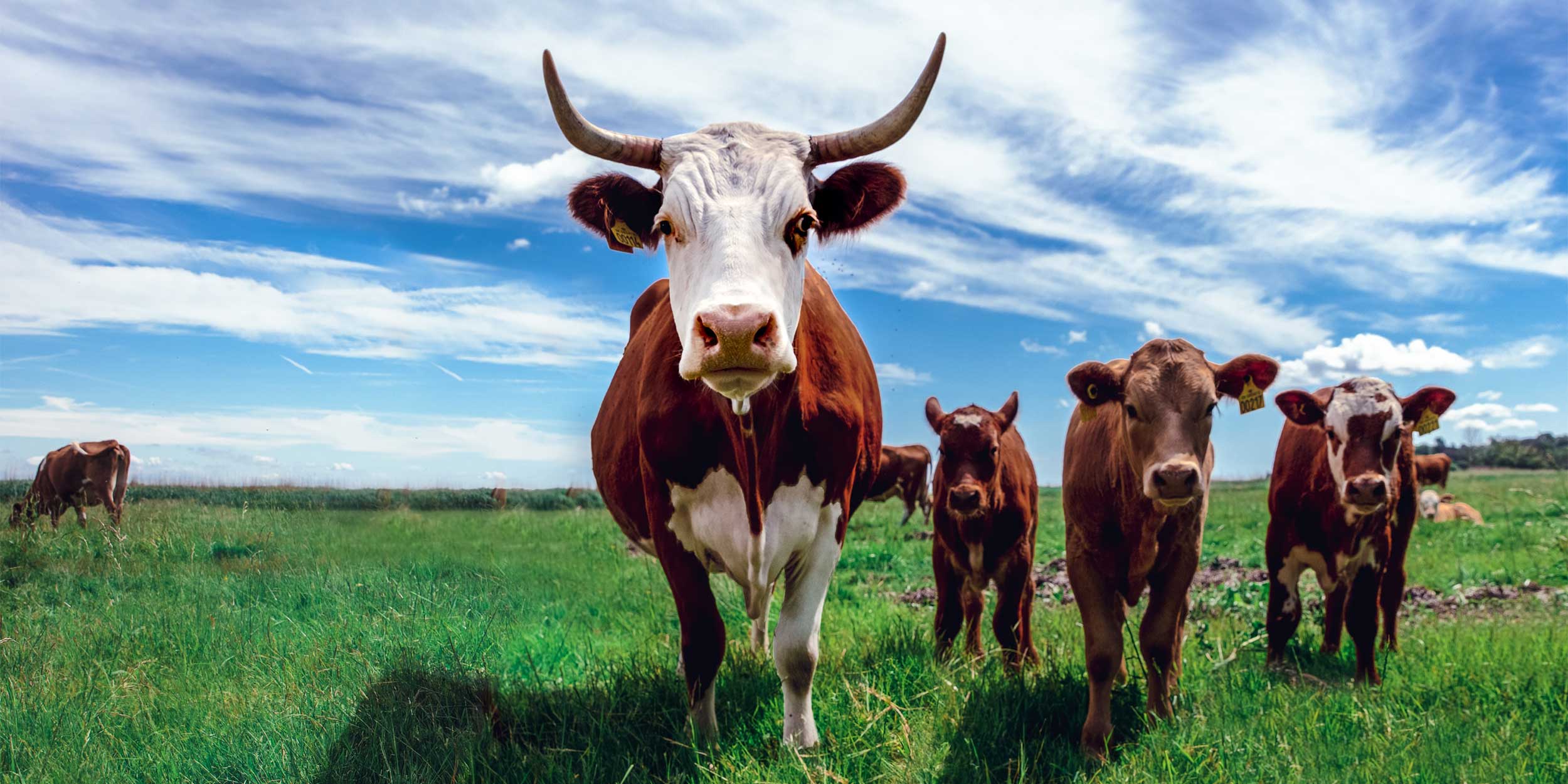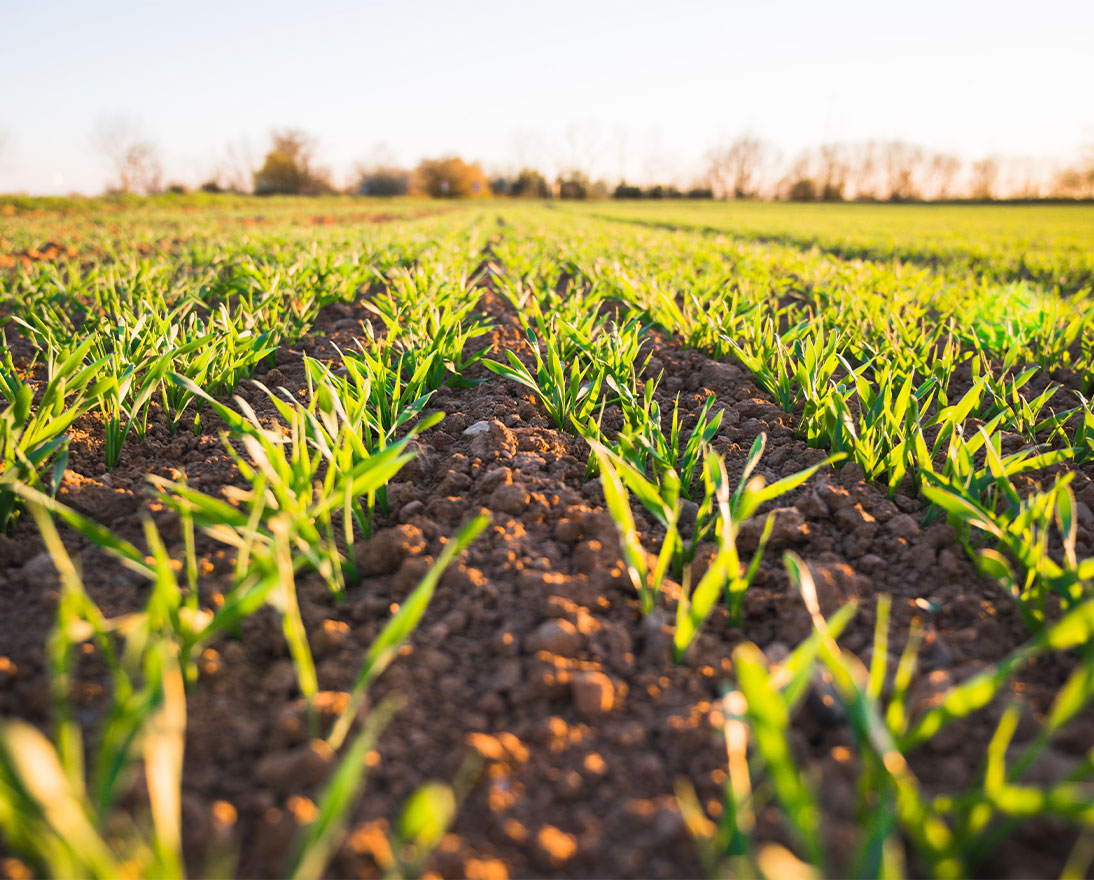Must we all turn vegan to save the planet?
SustainabilityArticleJanuary 7, 20227 min read
Meat eaters look away! Our current diet is causing immense environmental damage. Is it time for us to stop consuming animal products, or is there an alternative?
A confession. The author of this article is not a vegan, vegetarian, pescatarian or flexitarian. He’s a fully paid up member of the carnivorous club. And yet, having researched the topic he remains absolutely convinced that our global food system is damaging our planet. The endless list of reports and studies are compelling.
With current diets and production practices, feeding our planet’s 7.7 billion people is depleting freshwater resources, driving changes in land use, polluting and degrading land, marine and freshwater ecosystems, and is a leading driver of greenhouse gas emissions and climate change. And animal agriculture is the main culprit.
Every year we slaughter an estimated 50 billion chickens, 1.5 billion pigs, 550 million sheep, 450 million goats and 300 million cattle, which excludes a dairy cow population of 270 million. Those numbers are huge.
Must I, must we, turn vegan to save the planet?
One of the most compelling and comprehensive reports is from researchers at the University of Oxford, which examined data from nearly 40,000 farms in 119 countries in 2018. It estimates the emissions linked to food production – including transportation and deforestation – create 13.7 billion metric tons of carbon dioxide equivalents (CO2eq), contributing to 26 percent of anthropogenic greenhouse gases each year.
“Agriculture sits at the heart of almost all of the world’s environmental problems and the challenge is going to get significantly harder. We will need to produce more food in the next 80 years than we produced in the entire history of humanity,” says Joseph Poore from University of Oxford and co-author of the report.
“Of that there’s a shocking 1.3 trillion liters of milk and 500 billion kilograms of meat that we will produce annually by 2050. These are staggering numbers, a 60 percent increase on today and they’re going to put tremendous pressure on the world’s resources.”
The impact of animal agriculture
The report calculates that meat, aquaculture, eggs and dairy production use 83 percent of the world’s farmland and contribute 56-58 percent of food’s emissions. In return, they provide only 37 percent of our protein and 18 percent of our calories.

In addition, if we stopped consuming animal products about 3.1 billion hectares (7.7 bn acres) of land would go from farmland back to nature. That’s equivalent in size to about three United States, including Alaska, or the whole of the continent of Africa. This could potentially remove 8.1 billion metric tons of CO2eq from the atmosphere each year over 100 years as natural vegetation regenerates and soil carbon reaccumulates.
So, what’s the answer? You’ve guessed it. “Changing your diet to avoid animal products reduces your emissions for a typical global consumer by 28 percent, land use by 75% and water pollution by around 60%,” says Poore.
Of course, farmers, processors, distributors, retailers and the agrichemical industry all have a key role to play. But ultimately, it will be the consumer that will drive change.
“A typical person in the world emits about 6 tons of greenhouse gas emissions per year. Diet change is the single biggest way to reduce your impact on the environment. Not just emissions, but other environmental indicators: biodiversity, water use, habitat loss, deforestation, nitrogen and phosphorus pollution,” adds Poore.
But is it realistic to expect everyone to turn vegan? In the U.S., for instance, as of 2018 just 3 percent of people follow a vegan lifestyle with another 6 percent identifying as vegetarian. Persuading the other 91 percent to give up meat will be a monumental task.
Avoiding avocados
“You don’t have to become vegan overnight to make a big difference. You can source food locally and consider food miles. There’s no point in becoming a vegan if you’re eating avocado flown halfway around the world,” says Linda Freiner, Group Head of Sustainability at Zurich Insurance Group.
“You should also reduce your food waste. The average U.S. household wastes nearly one-third of the food that they buy – reduce food waste, reduce the environmental impact.
“And if you want to keep meat in your diet, try cutting back to one serving of red meat per week, replacing the rest with chicken, pork, fish or plant proteins,” Freiner adds.
Poore’s research suggests this approach could have a significant impact. “We looked at a scenario where we reduce our meat and dairy consumption by 50 percent. And what we find is that it achieves 75 percent of the vegan diet’s potential,” he explains.

This assumption is based on a finding that 25 percent of food producers create 55 percent of food’s environmental impacts. “If we stop consuming from that 25 percent, we could reduce our impact by 55 percent,” says Poore.
But that’s not as simple as it sounds. There is a huge variation between how different farmers produce the same product – and therefore it’s impact on the planet. For instance, according to Poore, there is a 500 percent difference in the environmental impact between the most and least sustainable forms of rice production.
“The rice looks the same in the shops, but for the planet it’s having extremely different consequences,” says Poore.
John Scott, Zurich’s Head of Sustainability Risk, says we need more transparency across the global food supply chain and to help consumers reconnect with food.
“As food became industrialized, we lost contact with why and how our food is produced. We go to a supermarket and we have no idea where our food came from, how it was reared, the food miles involved, nor its impact on the environment. That needs to change.”
Scott suggests adding environmental labels on food, like nutrition labels, to help consumers make informed decisions and allow them to choose lower-impact food products – while giving farmers and producers more incentive to curb their emissions.
He also believes we need to incentivize consumers to switch to lower carbon plant-based food options by creating carbon pricing mechanisms that allow consumers to understand the significant climate impact of the meat and dairy products they consume.
For ardent meat eaters and dairy consumers, it may sound like we’re heading towards food hell. But until we reach a zero-carbon world, this topic will not go away – calls for change will only get louder.
You don’t need to ditch meat completely to make a positive impact. And of course, there are other behaviors that we can change to lower our personal carbon footprints, including driving, flying and home energy use. If we can quickly change those behaviors, tweak our diets, then there will be no need to enforce an age of veganism upon us. But this author, may now think twice about that bacon sandwich.



